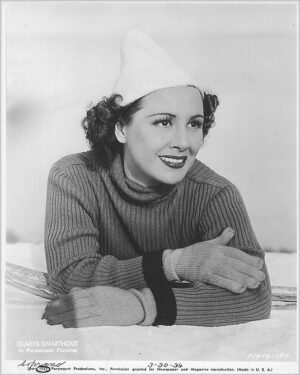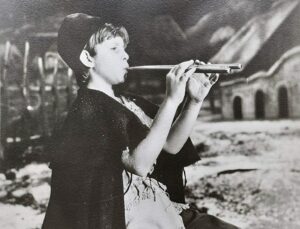The “Mourning Becomes Electra” that had its world premiere Friday evening at the Met is a tellingly staged melodrama, handsomely mounted. The question is, is it an opera?
I’m inclined to think not. True, most of the dialogue is sung, and there is a busy orchestra, and these factors should qualify it as an opera. But the nagging fact remains that it is the Electra legend and Eugene O’Neill’s adventurous use of it and, finally, librettist Henry Butler’s admirable concentration of O’Neill that engross us. We are, almost without pause, in the presence of pure theater.
Marvin David Levy’s score merely supports this impression. It is like shrewd background music for a film thriller, written after witnessing the rushes in a projection room. Except. of course, that he had to provide a vocal line. But that hardly matters. . .
The lack of heady set pieces is one of two major reasons for doubting that this “Mourning Becomes Electra” is an opera. The other is that Levy has not defined his characters musically, except for showing their present emotional states from time to time by having them shuffle and quaver a vocal line. In the main, he has contributed spook music – rattles, groans, rasps, tintinnabulations and such. There is even a taped section, before the ship-board scene, of lapping water and other harbor sounds. Sounded pretty good, by the way. Elsewhere, the between-scenes music is just noodling to keep us engaged. The work, running to almost four hours, with intermissions, is divided into three acts, one for each of the plays making up the O’Neill trilogy.
Zubin Mehta conducted the whole affair brilliantly and Michael Cacoyannis directed his singers as if they were simply actors, giving them steadily meaningful gestures, movements and even facial expressions to keep the play alive.
The cast is first-rate. Marie Collier, an Australian soprano making her Met debut as Christine (Clytemnestra) Mannon, is a fine figure of a brunette woman with a strong, clean and imperious voice. And Evelyn Lear, an American soprano cast as Lavinia (Electra) and also making her debut, is equally effective as the obsessed daughter. The two stalk each other beautifully. John Reardon is the Orin (Orestes) and an extremely appealing one. And Sherrill Milnes is excellent as Christine’s lover, Adam Brant.
On this day in 1951 soprano Victoria de los Angeles made her Metropolitan Opera debut as Marguerite
Birthday anniversaries of Giovanni Targioni-Tozzetti (1863), soprano Franca Somigli (1901) tenor Walter Ludwig (1902), composer John La Montaine (1920) and mezzo-sopranos Betty Allen (1930) and Elisabeth Steiner (1935).


